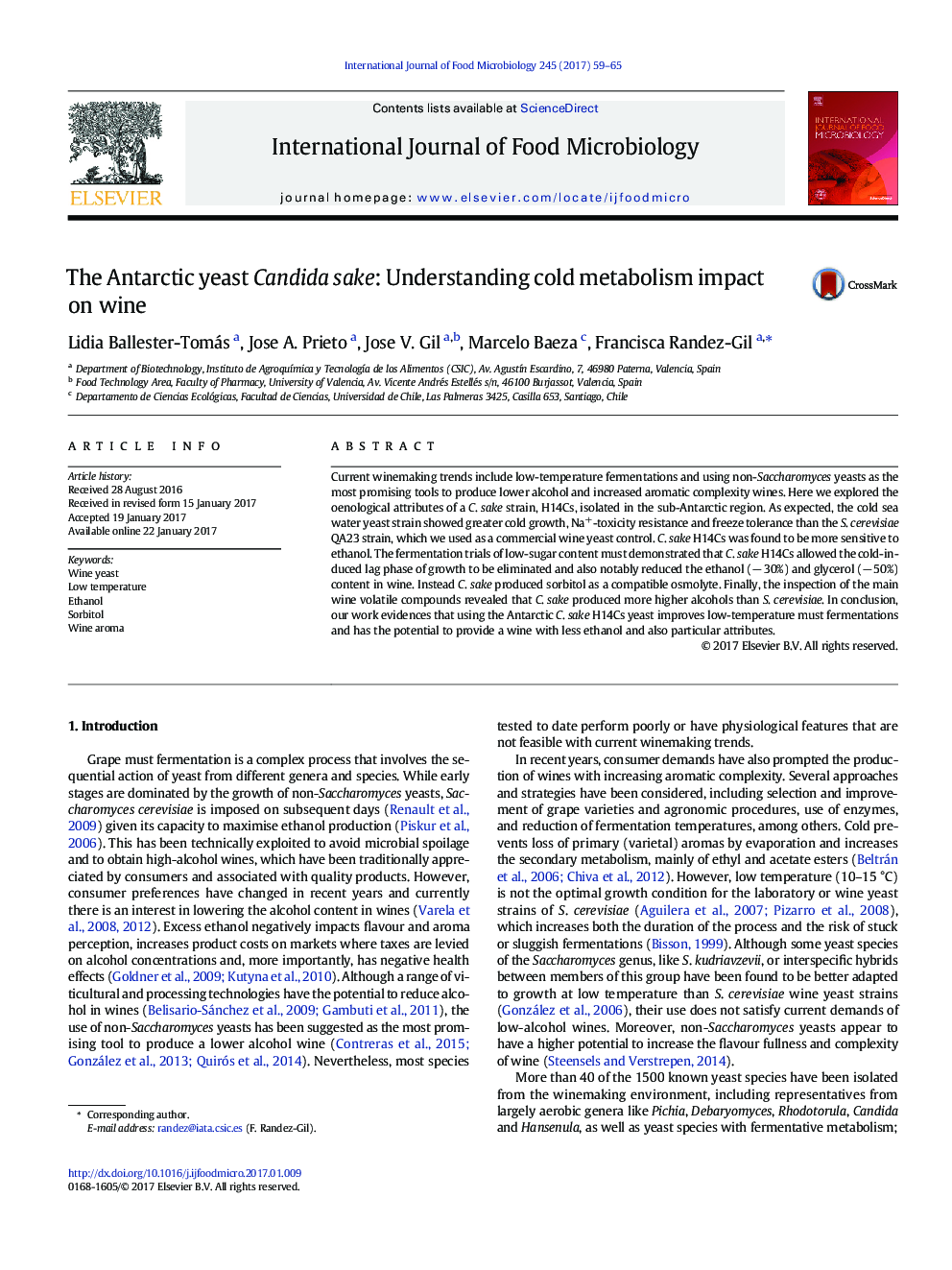| Article ID | Journal | Published Year | Pages | File Type |
|---|---|---|---|---|
| 5740875 | International Journal of Food Microbiology | 2017 | 7 Pages |
â¢The oenological attributes of a Candida sake strain have been explored.â¢C. sake has higher cold and lower ethanol tolerances than commercial wine yeast.â¢Must fermented with C. sake exhibits low ethanol and high sorbitol content.â¢Fermentation with C. sake provides a particular volatile profile.â¢C. sake offers the opportunity to increase wine complexity.
Current winemaking trends include low-temperature fermentations and using non-Saccharomyces yeasts as the most promising tools to produce lower alcohol and increased aromatic complexity wines. Here we explored the oenological attributes of a C. sake strain, H14Cs, isolated in the sub-Antarctic region. As expected, the cold sea water yeast strain showed greater cold growth, Na+-toxicity resistance and freeze tolerance than the S. cerevisiae QA23 strain, which we used as a commercial wine yeast control. C. sake H14Cs was found to be more sensitive to ethanol. The fermentation trials of low-sugar content must demonstrated that C. sake H14Cs allowed the cold-induced lag phase of growth to be eliminated and also notably reduced the ethanol (â 30%) and glycerol (â 50%) content in wine. Instead C. sake produced sorbitol as a compatible osmolyte. Finally, the inspection of the main wine volatile compounds revealed that C. sake produced more higher alcohols than S. cerevisiae. In conclusion, our work evidences that using the Antarctic C. sake H14Cs yeast improves low-temperature must fermentations and has the potential to provide a wine with less ethanol and also particular attributes.
